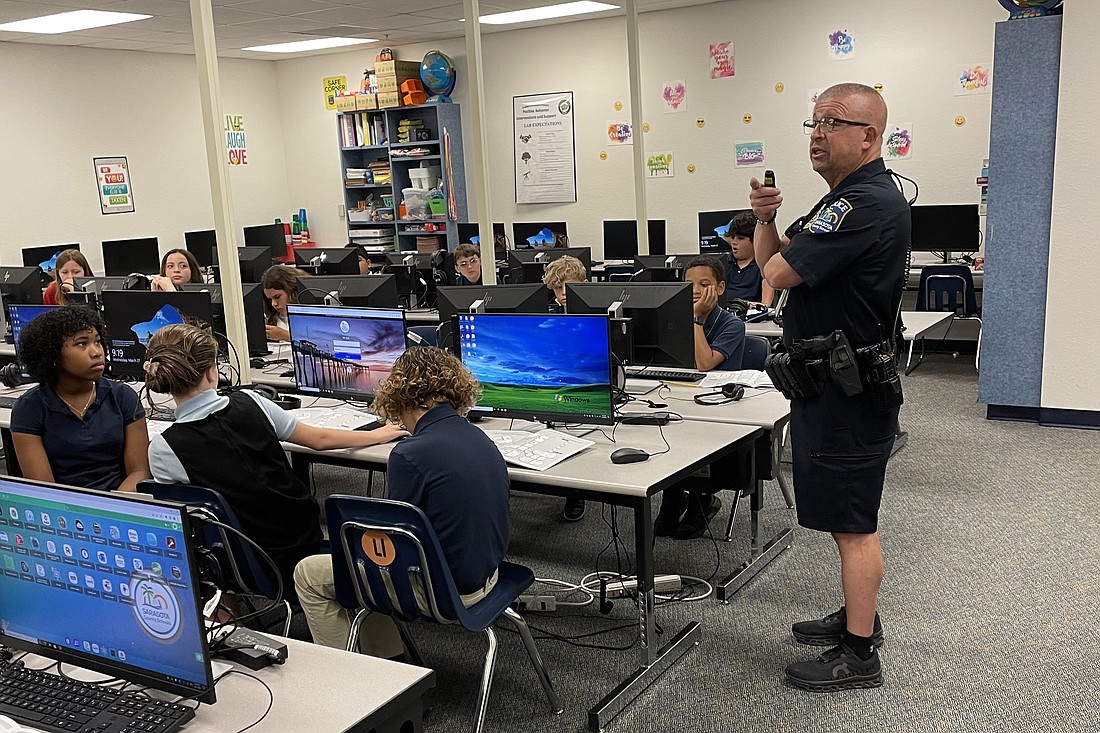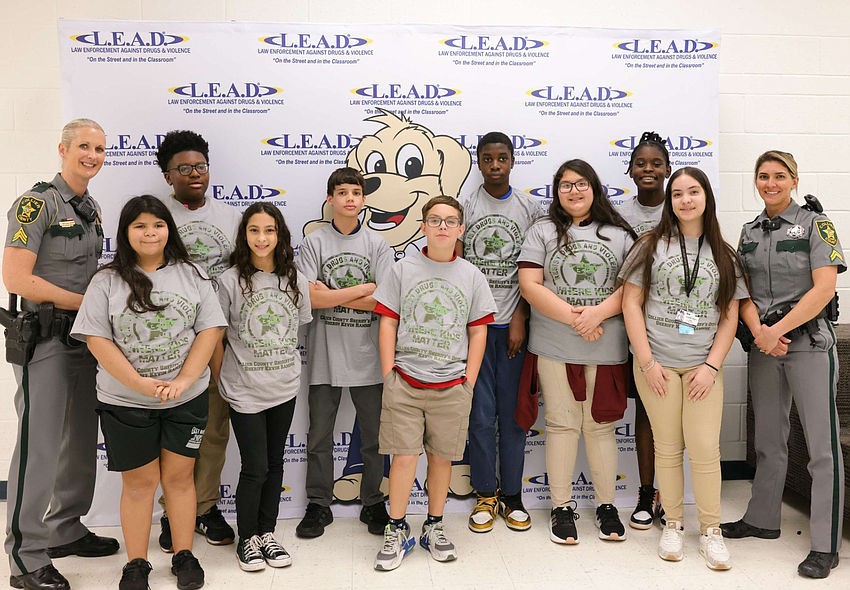- April 29, 2025
-
-
Loading

Loading

Sergeant Jim Wozniak of the Sarasota County Schools Police Department said when he taught students in the classroom during his time at Laurel Nokomis School, the experience brought him back to memories of raising his three boys.
He hopes to see school resource officers and students forming such relationships with the L.E.A.D. (Law Enforcement Against Drugs & Violence) program now implemented at some Sarasota County schools.
As of the start of February, schools began the program at varying times, with six of 23 elementary schools, for a total of 690 students, now involved.
“It's hard to find role models today, and any way that we can put our foot in the door to do that, we're going to do it," Wozniak said.
Replacing D.A.R.E. (Drug Abuse Resistance Education), the scripted 10-week program, which uses the “Too Good for Drugs” curriculum, teaches about the consequences of alcohol, tobacco and other drugs, and includes character-building lessons on topics like resisting peer pressure.
L.E.AD., a nonprofit, works in communities nationwide through “On the Street” and “In the Classroom” courses.
“The responses that we've gotten back from the kids is positive,” Wozniak said. “They’re very well engaged, speaking with the officers that are teaching the program, and they have a fun time with some of the games that are involved in the lesson plans.”

The relationships that are being built are important, Wozniak said, as it may not be only students suffering from drug addiction, but also their older siblings and parents, a situation of which the program can improve their understanding.
Wozniak also said that based on feedback from other states using the program, it offered a curriculum relevant to issues in today's society.
“Understanding social behaviors and modern trends, and keeping up with the trends, is very important,” he said.
Nick DeMauro, the CEO of L.E.A.D., said the program helps address current issues, including increased access to cannabis as a result of deregulation.
Wozniak emphasized that some information the school resource officers can share will be especially important for today's older students, as many drugs now have the added danger of being laced with fentanyl.
However, DeMauro said the attention of the curriculum to character-building was an important feature.
“We want the kids to understand how to solve the problem before they face it,” he said.
He also emphasized the program's ability to change perceptions of law enforcement.
“They're there to serve our needs, not just to arrest. They’re there for first aid, they're there for education, they’re there for prevention; they’re there to serve, and I'm very proud of that direction law enforcement has evolved through the years,” he said.
According to Wozniak, the program also allows teachers to form a similar connection with law enforcement as well, as they are also present during the class sessions.
Currently, six School Resource Officers (SROs) – Michael Chrone, Anthony Limite, Steven Roy, Marino Rotondo, Michael Clarkson and Steve Laymon – are trained by L.E.A.D. to teach the program.
Wozniak said one to two years in the future, the school district could choose to implement the program at all elementary schools.
“Educating them in this and the experiences that they're going to go through over the next couple years moving up into high school, hopefully we will see a reset of the numbers of kids that are actually doing drugs, because the experiences and education that they have, on exactly how dangerous it is, will get across to them,” he said.